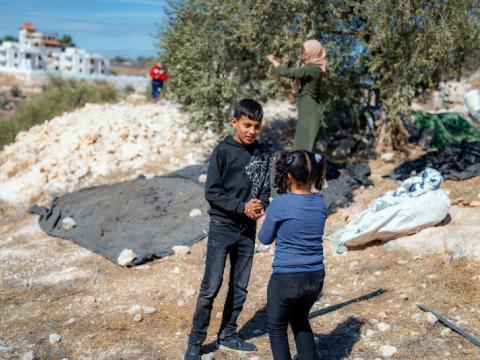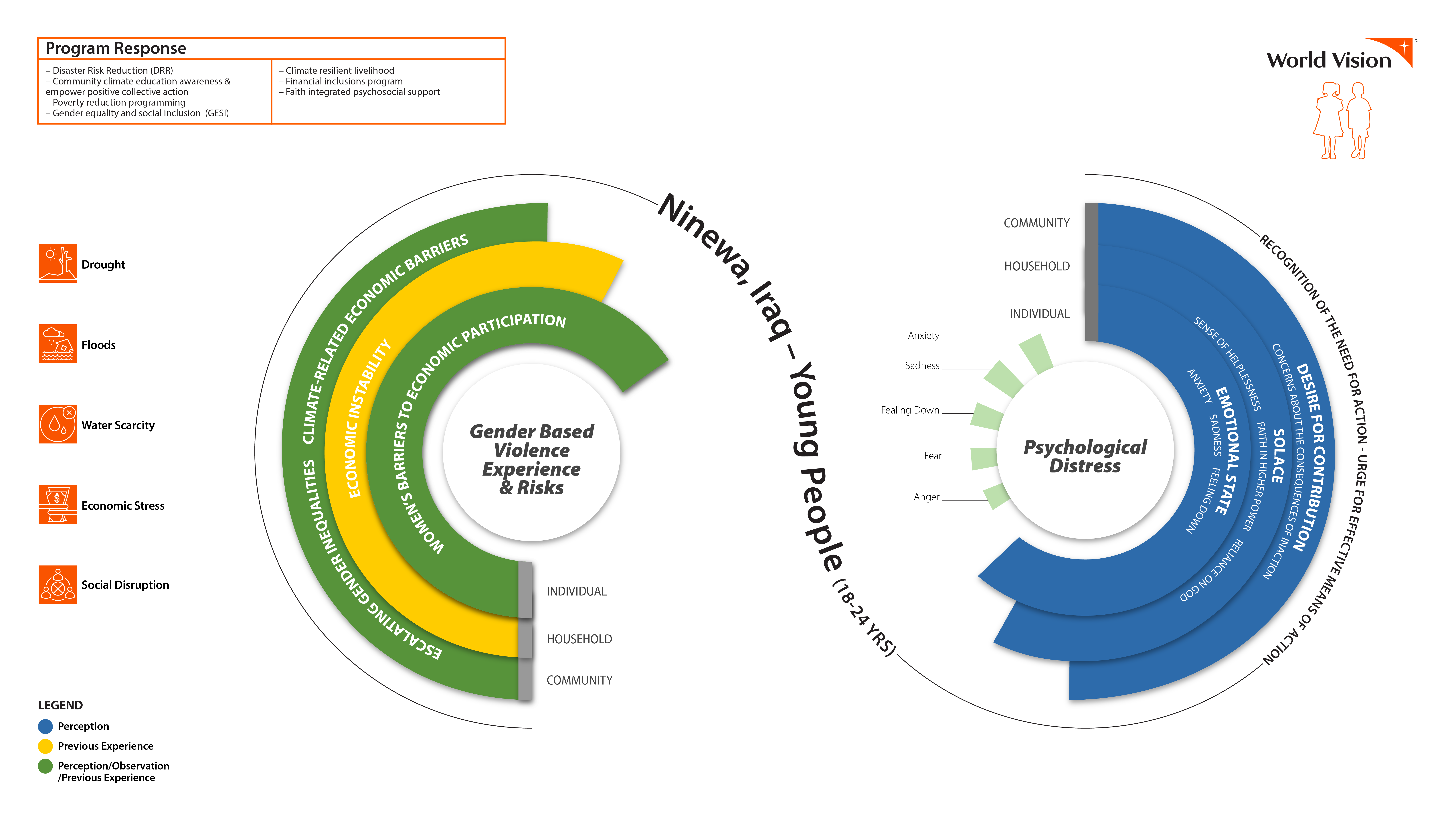World Children’s Day: children and young people’s futures and well-being are at risk due to dire impact of climate change in the Middle East

20 November 2024 – On World Children’s Day, global aid agency, World Vision, is raising the alarm about the dire effects that climate change is having on children and young people in the Middle East, many of whom are already impacted by violence, conflict and displacement.
- Children and young people told us they are concerned about climate change’s impact on the quality of their education, their ability to regularly access school, and their future economic opportunities.
- Girls are disproportionately affected by the impacts of climate change, including climate-induced education disruption and early child marriage.
- Most young people and children said they are worried about environmental hazards, such as air pollution, extreme heat, drought, and strain on water resources in their respective contexts.
- Children and young people said they are anxious about the potential for their families to be affected by food insecurity because of climate change’s impact on the quality of their crops and overall agricultural outcomes.
- Children and young people said they are panicked about not having access to clean water during extreme weather events and/or having to use contaminated water, purchase private water, or travel long distances to collect water.
- Children and young people said they are facing climate-induced psychological distress including anxiety, sadness, and a sense of helplessness due to these tangible impacts, such as reduced food security, worsening health conditions (e.g. respiratory illnesses), water scarcity, and disruptions in education and employment opportunities.
“We are at risk of losing an entire generation in the Middle East region. Children are unable to access healthy nutrition, education opportunities, and fulfil their full potential due to conflict, displacement and climate change, which are all interconnected and must be urgently addressed,” said Eleanor Monbiot, Regional Leader at World Vision Middle East and Eastern Europe.
World Vision Middle East and Eastern Europe’s joint study, Impact of Climate Change Crisis and Environmental Actions: Mental Models of Children and Young People in Lebanon, Syria, Jordan, Iraq and Occupied Palestinian Territories, with the American University of Beirut (AUB), found that climate shocks, exacerbated by ongoing conflict and fragility in the Middle East, significantly intensify children and young people’s vulnerability, challenging their resilience in the face of adversity. In conflict-affected regions, in particular, climate-induced resource scarcity, food insecurity, and displacement were found to heighten social tensions and act as threat multipliers.
Education-related issues were especially concerning for children and young people in locations experiencing prolonged conflicts and poverty, while food security was a pressing concern in areas facing civil unrest. These challenges are heightened by concerns of displacement due to climate risks like extreme heat, drought and environmental degradation, further amplifying their sense of uncertainty about the future.
Despite all the challenges presented by the climate crisis in the Middle East region, the study also finds that there is a universal desire among children and young people to be involved, learn, and contribute to addressing the impacts of climate change in their home countries and beyond.
"As young people, we need support from the wider society and government leaders to limit the impacts of climate change. This cannot be achieved through individual efforts; it must be addressed collectively," said a 19-year-old girl from the West Bank
ENDS
Notes to editor:
A joint study, Impact of Climate Change Crisis and Environmental Actions: Mental Models of Children and Young People in Lebanon, Syria, Jordan, Iraq and Occupied Palestinian Territories, by World Vision Middle East and Eastern Europe and the American University of Beirut (AUB), explored the diverse perceptions of climate change hazards and adaptation strategies of children and young people residing in the most climate-vulnerable settings of five distinct countries in the Middle East through an innovative mental model approach that is conceptualised in detailed mental model illustrations co-produced by the Beirut Urban Live (BUL).

The study employed a qualitative ‘vignette technique’ in Lebanon, Syria, Iraq, Jordan, and the West Bank, to delve into the unique experiences and perceptions of 76 key informants, including children and young people between the ages of 8 and 17, who are particularly vulnerable to climate change. These insights form the basis for visual mental models using WordStat and Mental Modeler, which generates graphical representations, such as concept maps, to illustrate relationships between various elements. This iterative process ensures that the final models reflect participants’ perceptions and cognitive structures, providing a deeper understanding of the impacts of climate change on children and youth.
Through our Environmental Stewardship and Climate Adaptation programmes, World Vision Middle East and Eastern Europe strives to ensure that the voices of children and young people are heard and considered at every stage of decision-making in the fight against climate change. Children and young people must remain at the forefront of climate action to secure a greener and safer future for generations to come.
For more information contact: Evita Jourdi, Regional advocacy, communications and external engagement senior adviser: evita_jourdi@wvi.org